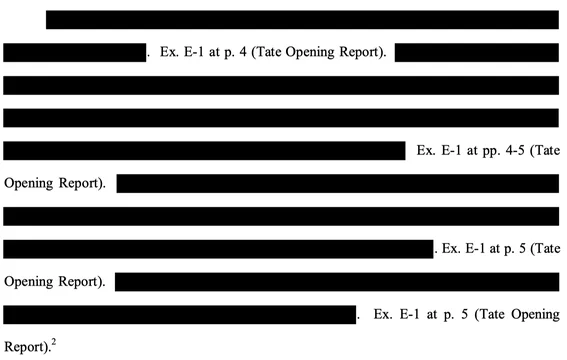As we've mentioned previously, it has been Judge Andrews' practice for the past couple years to summarily reject filings that seal exhibits in their entirety, with an order like the following:

The redacted filings (D.I. 453 , 454 , and 458 ) are REJECTED because parts of them are redacted in their entirety. Absent a compelling reason, supported by a statement under oath by a party, redactions in their entirety are impermissible; redactions must be done so as to redact the least possible amount of the materials submitted. Failure to make a good faith attempt at such redactions may result in sanctions, the most common of which would be simply unsealing the entire filing. Redacting in its entirety a document that contains publicly available materials is prima facie evidence of bad faith. Revised redacted filings are DUE within five business days.
Sysmex Corp. v. Beckman Coulter, Inc., C.A. No. 19-1642-RGA, D.I. 459 (D. Del. Jan. 26, 2022)
But what happens if, after receiving this notice, you submit the paper again, with some of the exhibits still redacted in full?
Well, nothing good:
At this point, I cannot find that Plaintiff has been operating in good faith. Thus, I will set a show cause hearing at which I will consider issuing a sanction of $10,000 to $100,000. Before I set a date for that hearing, I need two things: (1) Plaintiff has ten days to give the redactions on Exhs. B, F, G, H, and I one more try; and (2) I need Plaintiff to identify the lawyer who is responsible for the significant waste of my time dealing with this issue.
Greenthread, LLC v. ON Semiconductor Corp., C.A. No. 23-443-RGA , D.I. 88 (D. Del. Apr. 30, 2024)(Oral Order)
Ooof.
The Order issued after the plaintiff received a notice to refile the redactions like the one above and then resubmitted with 4 exhibits still fully redacted and a supporting client declaration which was "stated at a very high level of generality." Id.
The Order offered some helpful guidance on the portions of the exhibits—license agreements all—that could have properly been redacted:
The four agreements are 100% redacted even though large parts of them are boilerplate. I would accept that the licensees (other than RPX) and sublicensees could properly be redacted, maybe the dollar figures, banking information, etc.
Id.
So if you're ever asked by a client, colleague, or a particularly bored spouse exactly how much over-redaction can cost you, you can say $100K.
I really promise we'll update this one when we get a ruling on that show cause hearing.
If you enjoyed this post, consider subscribing to receive free e-mail updates about new posts.





